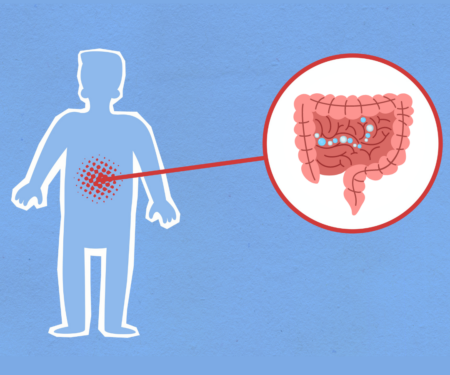Digestive Health Specialists, PA is here to help if you, or someone you know, would like more information or if you are experiencing any digestive health symptoms and would like further evaluation. Feel free to call us at 336-768-6211 or fill out the form below.
Understanding Irritable Bowel Syndrome (IBS): Symptoms, Treatments, and Lesser-Known Facts
Irritable Bowel Syndrome (IBS) is a prevalent gastrointestinal disorder affecting millions worldwide. It’s a chronic condition that affects the large intestine, causing uncomfortable symptoms. While not life-threatening, IBS can significantly impact one’s quality of life. Let’s delve into what IBS is, its symptoms, treatment options, and some lesser-known facts about this often misunderstood condition.
What is Irritable Bowel Syndrome (IBS)?
Irritable Bowel Syndrome is a functional gastrointestinal disorder characterized by abdominal pain or discomfort, along with changes in bowel habits. These changes may include diarrhea, constipation, or a combination of both, often accompanied by bloating and excessive gas. The exact cause of IBS remains unclear, but factors such as abnormal muscle contractions in the intestines, inflammation, and disturbances in the gut-brain axis are believed to play significant roles.
Statistics and Lesser-Known Facts
- Prevalence: It is one of the most common gastrointestinal disorders worldwide, affecting an estimated 10-15% of the global population.
- Gender Differences: Women are more likely to be diagnosed with IBS than men, with studies suggesting that hormonal fluctuations may play a role in symptom severity.
- Impact on Mental Health: Individuals with Irritable Bowel Syndrome are at higher risk of developing anxiety and depression. The gut-brain axis, which refers to the bidirectional communication between the gut and the brain, plays a significant role in the relationship between IBS and mental health.
- Overlap with Other Conditions: IBS often coexists with other chronic conditions such as fibromyalgia, chronic fatigue syndrome, and temporomandibular joint disorder (TMJ).
- Diagnostic Challenges: Diagnosing IBS can be challenging due to the absence of specific biomarkers or diagnostic tests. Diagnosis is typically based on symptom criteria established by medical guidelines, known as the Rome criteria.
Symptoms of IBS
The symptoms of Irritable Bowel Syndrome can vary widely among individuals and may come and go over time. Common symptoms include:
- Abdominal Pain: Often described as cramping or aching, abdominal pain is a hallmark symptom of IBS. It can vary in intensity and may be relieved or exacerbated by bowel movements.
- Changes in Bowel Habits: Individuals with IBS may experience diarrhea, constipation, or both, alternating between the two. These changes in bowel habits may occur over days, weeks, or even months.
- Bloating and Gas: Excessive gas and bloating are frequent complaints among those with IBS. This can contribute to discomfort and a feeling of fullness.
- Mucus in Stool: Some individuals with IBS may notice the presence of mucus in their stool, a common but often overlooked symptom.
IBS Treatment Options
While there is no cure for Irritable Bowel Syndrome, several treatment options can help manage symptoms and improve quality of life:
- Dietary Changes: Many individuals find relief by modifying their diet. This may involve avoiding trigger foods such as dairy, caffeine, fatty foods, and artificial sweeteners. Increasing fiber intake and staying hydrated can also help regulate bowel movements.
- Medications: Over-the-counter medications like antidiarrheals, laxatives, and antispasmodics can provide temporary relief from symptoms. In some cases, prescription medications such as antidepressants or medications that regulate bowel function may be prescribed by a healthcare provider.
- Stress Management: Stress and anxiety can exacerbate symptoms of IBS. Techniques such as relaxation exercises, meditation, and cognitive-behavioral therapy (CBT) can help manage stress and improve overall well-being.
- Lifestyle Modifications: Regular exercise, adequate sleep, and avoiding smoking and excessive alcohol consumption can all contribute to better symptom management.
- Probiotics: Some studies suggest that probiotics, which are beneficial bacteria, may help alleviate symptoms of IBS by restoring balance to the gut microbiota.
Irritable Bowel Syndrome is a complex and often frustrating condition that affects millions worldwide. While there is no cure, various treatment options can help manage symptoms and improve quality of life. By understanding the symptoms, treatment options, and lesser-known facts about IBS, individuals can better cope with this chronic condition and work towards achieving symptom relief. If you suspect you may have IBS, it’s essential to consult with a healthcare provider for proper diagnosis and personalized treatment recommendations.










